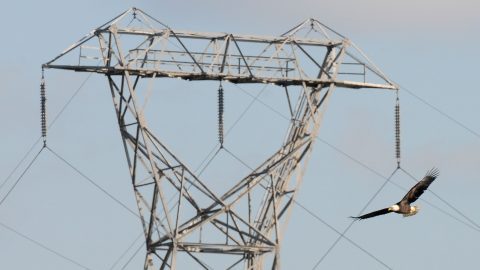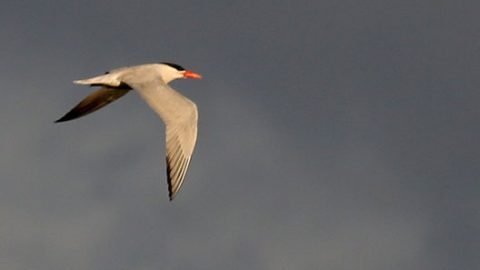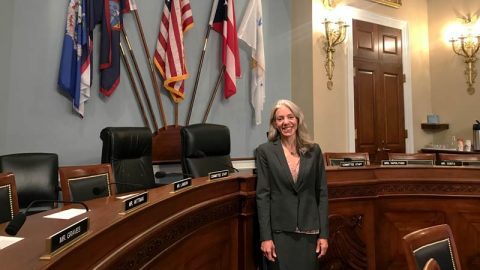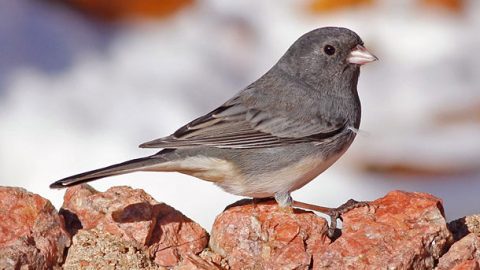Explainer: What’s at Stake in the 2020 Rollback of Migratory Bird Treaty Act Protections?
By Gustave Axelson
October 20, 2020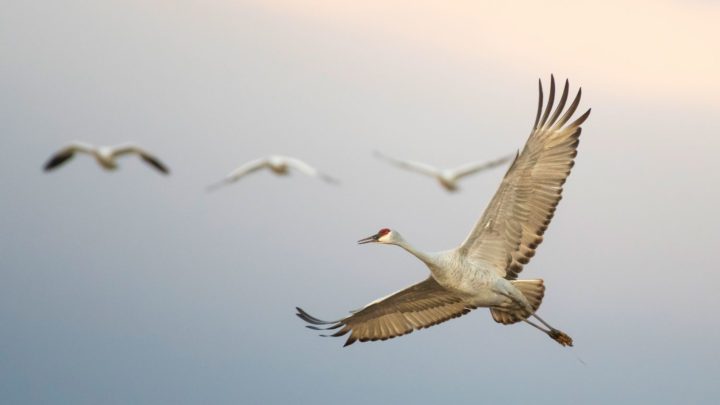
Originally published February 2020, updated October 2021.
Update October 2021: Under the Biden administration, the U.S. Fish and Wildlife Service reinstated protection from incidental take for birds covered by the Migratory Bird Treaty Act, revoking a former ruling by the Trump Administration that took effect in January 2021.
Update March 18, 2020: Cornell Lab of Ornithology Senior Director of Conservation Science Amanda Rodewald submitted a public comment to the U.S. Fish and Wildlife Service that highlighted a few examples of birds that will be hurt by giving industry a free pass on so-called “incidental take” (see below for more on incidental take).
Rodewald’s comment included examples of declining bird species (with the scale of loss since 1970) along with a note about their susceptibility to incidental take, based on a review of research about industry-related bird mortality.
- Northern Bobwhite quail—4 in 5 lost; susceptible to oil pits
- Eastern Meadowlark—3 in 4 lost; susceptible to oil pits, collisions
- Golden-winged Warbler—3 in 5 lost; susceptible to collisions
- Least Tern—more than half lost; susceptible to oil spills
- Barn Swallow—2 in 5 lost; susceptible to oil pits
The USFWS estimates that industry alone kills up to 1.1 billion birds each year.
Dr. Rodewald says:
The science is clear—we should be doing more, not less, to protect birds. The exclusion of incidental take from the MBTA renders the Act impotent on most sources of mortality for migratory birds and eliminates a powerful incentive for industry to proactively reduce or mitigate impacts to birds.
Read the full text of Rodewald’s public comment.
Original post (February 2020):
The following explainer helps put some context around the proposal to weaken the Migratory Bird Treaty Act protections.
What just happened?
In January 2020 the U.S. Department of the Interior proposed regulations to codify the Trump Administration’s 2017 legal opinion that Migratory Bird Treaty Act protections do not include so-called “incidental take.” This new rule would reverse a half-century of federal policy that held industry and companies liable for irresponsible actions that resulted in preventable (if unintentional) bird deaths, such as the 1 million birds killed in the Gulf of Mexico in the 2010 Deepwater Horizon oil spill.
Some background
More on the Migratory Bird Treaty Act
For the last 50 years, the U.S. Fish and Wildlife Service has interpreted the Migratory Bird Treaty Act, or MBTA, to protect birds from incidental take. The Act has been used sparingly as a punitive measure—just 14 times over the past two decades, including 9 federal prosecutions that were against energy industry operations and two that involved the use of pesticides.* After the Deepwater Horizon oil spill, $100 million in fines stemming from the MBTA were directed toward the restoration of damaged habitat.
The MBTA Was a Powerful Tool
Prior to this policy reversal, the MBTA was a powerful tool in promoting productive dialogue among industry, environmental groups, and the federal government to prevent bird deaths. “Numerous common sense solutions [stemming from the MBTA] have reduced the incidental, wanton killing of millions of birds by such hazards as open oil waste pits, oil spills, unprotected pesticide residues, unmarked transmission lines, and lethally situated wind farms,” wrote Cornell Lab of Ornithology director John W. Fitzpatrick in a 2018 column for Living Bird magazine. “Under [the Trump Administration’s] new and extremely narrow interpretation, whole industries (e.g., energy, mining, chemical production) are suddenly freed from legal liability even if their actions result in predictable, avoidable, and massive killing of birds.”
Passed to Protect Birds; Now Rendered “Impotent”
The Migratory Bird Treaty Act of 1918 was passed by Congress and signed by President Wilson to protect birds. This policy reversal renders the Act “impotent,” in the words of Cornell Lab Conservation Science director Amanda Rodewald, who points out that under the Trump Administration policy reversal, companies will escape legal responsibility for actions that kill millions of birds every year. In testimony before the U.S. House Subcommittee on Water, Oceans, and Wildlife, Rodewald said: “The exclusion of incidental take renders the [MBTA] impotent on most sources of mortality for migratory birds and eliminates a powerful incentive for industry.”
Critics of the MBTA say it was only intended to regulate hunting
The Migratory Bird Treaty Act was not focused narrowly on hunting; it was written to provide broad protections to stop the mass killing of birds. “For at least five decades, Republican and Democratic administrations alike have understood the Act to prohibit the ‘taking’ and ‘killing’ of birds without permits, whether by hunting or other means,” wrote Lynn Scarlett—Cornell Lab board member and former deputy secretary of Interior under President George W. Bush—in a 2018 analysis for Living Bird magazine. “In December 2017, the Department of the Interior abruptly shifted course… narrowing interpretation of the Act to apply only when killing or ‘taking’ birds is the purpose of the action, as in hunting.… but if Congress had meant hunting only, they would have said ‘hunting.’ They did not. They made it unlawful to kill birds, by any means, at any time.”
Now is the wrong time to remove protections against mass bird kills
In September 2019, Cornell Lab scientists led by Ken Rosenberg coauthored research published in the journal Science that found North American bird populations have lost nearly 3 billion breeding birds—a 29% decline since 1970. “Now is clearly not a good time to be weakening regulations that prevent the killing of birds,” says Rosenberg.
You Can File a Public Comment
Whatever your own thoughts about the proposed rule change, you can let the government know them. The U.S. Fish and Wildlife Service has established a public comment period to last through March 19. You can file your public comment here.
* Scott, J. and Folds, A. (2019). From Friend to Foe: The Complex and Evolving Relationship of the Federal Government and the Migratory Birds it Is Bound to Protect. Environmental Law 49: 187-227. (see page 217 under A. Interior’s Historical Position, page 31 of the PDF)

All About Birds
is a free resource
Available for everyone,
funded by donors like you
American Kestrel by Blair Dudeck / Macaulay Library
